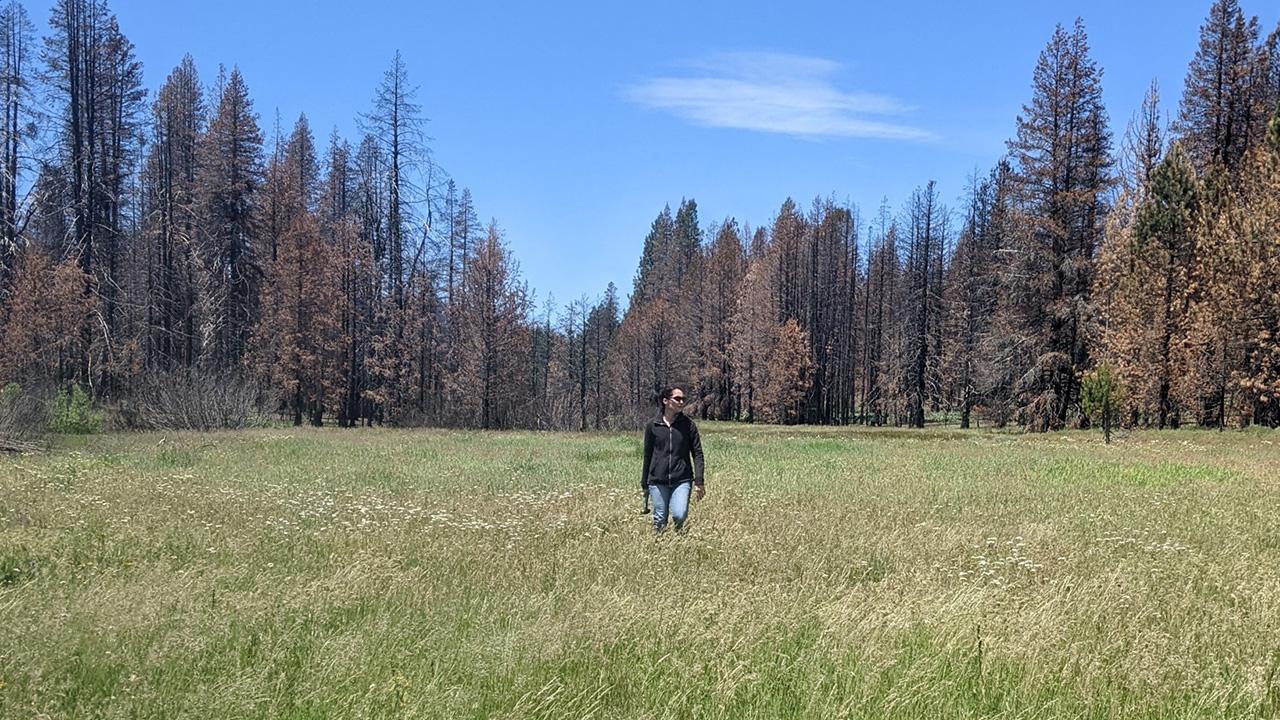
GSR Profile: Leslie Roche – Associate professor of Cooperative Extension
GSR awards are seeds that bear much fruit
Leslie Roche is an associate professor of Cooperative Extension with the UC Davis Department of Plant Sciences, with a focus on management of rangelands and pasture. Roche's early work as a Graduate Student Research award recipient helped lay the foundation for the later establishment of the UC Rangelands Research and Information Center, where she is now director. Her related work includes irrigated pasture management, ecology of grazing lands, grazing systems, drought and climate change adaptation.

Q: You received a Graduate Student Research award as a student in the UC Davis Department of Plant Sciences. How did that help you? The UC Davis Department of Plant Sciences GSR award launched my career in UC Cooperative Extension. During my years as a GSR recipient, I connected with a diversity of CE specialists and advisors, faculty from UC Davis and UC Berkeley at the UC Agricultural Experiment Station, federal agency staff, and ranchers.
Q: How did this research training prepare you for your current role? The GSR support freed me to fully pursue my extension interests, which are not always rewarded or even allowed in other support programs. The GSR allowed me to develop my technical capacity and training in fundamental principles, and also enhance transferable skills such as building effective communication strategies and working across disciplinary and institutional boundaries.
Q: What was your research during your graduate studies at UC Davis? My dissertation research focused on the intersection of public lands grazing and conservation of the Yosemite toad, a species listed as threatened under the Endangered Species Act. I collaborated with campus faculty, UCCE advisors, federal agency leaders and local ranchers to use a multi-pronged approach to examine three key issues: 1) factors influencing toad breeding habitat selection, 2) potential effects of proposed livestock management strategies on toad populations and habitat quality, and 3) spatial and temporal distribution of meadow habitat use by both toads and livestock.
Through this work, we demonstrated the compatibility of livestock production and amphibian conservation objectives. The insights drawn from this research have been integrated into federal policy directives and informed site-specific habitat conservation strategies.
Q: What outreach and extension research did you undertake as part of your studies?
Throughout my graduate studies, I integrated extension and education tools to reach diverse management, conservation and policy communities. I led the creative development of webpage and social media content, face-to-face workshops and field days, extension handouts and policy briefs. I also led special rangeland science and management symposia, which drew as many as 400 stakeholders to a single event. These symposia featured a diversity of scientists working on key issues, as well as leaders with practical experience in management and policy decision-making on rangelands.
These early efforts were the foundation for our current UC Rangelands Research and Information Center.
Seeds that bear much fruit
Thanks to the James Monroe McDonald Endowment, the Department of Plant Sciences has been able to support dozens of our very best graduate students - scientists-in-training such as Leslie Roche - with awards that supplement their finances. Graduate Student Research awards provide $20,000 yearly for two years to master's degree students, and for four years to doctoral students.

Like Roche, many go on to careers in UC Cooperative Extension. The McDonald Endowment, administered by UC Agricultural and Natural Resources, provides these funds so that our students can translate research into action, making an impact on California and beyond.
In this series, we highlight a few of our GSR award recipients who have gone on to careers supporting healthy food systems, healthy environments, healthy communities and healthy Californians.
Related links
During her GSR-supported research on cattle grazing, Roche and her team discovered that the decline of the threatened Yosemite toad was related to the wetness of meadows where they live, not to cattle grazing. That work has informed the planning process of United States Forest Service officials working to preserve both the toad and ranchers’ use of the land.
Media Resources
- Trina Kleist, UC Davis Department of Plant Sciences, tkleist@ucdavis.edu, (530) 754-6148 or (530) 601-6846
